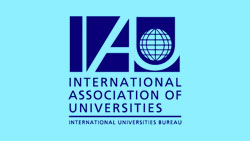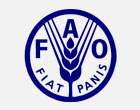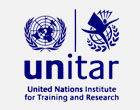Times Higher Education World University Rankings
Ibero-America
Number 1 online university
Worldwide
Top 200 among the world's youngest universities
Spain
Top 10 Spanish universities
The UOC was created in 1995 as the world's first university with a virtual campus, which allowed its students to study at any time from any location. The University continually uses cutting-edge e-learning research and innovation to refine the UOC methodology. This is possible thanks to UOC R&I and its 50 plus research groups, as well as the eLearning Innovation Center, which drives educational innovation at the UOC. Furthermore, as pioneers and leaders in education's digital transformation, we lend our knowledge and experience to education administrations in need of them. Find out how.
Moreover, with more than 120,000 graduates, it is now one of the biggest universities in Spain.
|
90,400
|
students |
|
122,750
|
graduates |
The Parliament of Catalonia unanimously approved the law that recognized the Universitat Oberta de Catalunya (Law 3/1995, of 6 April) as a university that would render a public service but organized in accordance with private management principles.
Its mission is to let technology open the door to high-quality university education for everyone, with merit as the sole criterion.
We adopted the United Nations 2030 Agenda for Sustainable Development as our roadmap.
 |
 |
| The UOC is a member of the MIT’s Jameel World Education Lab, which seeks to promote excellence and transformation in education. |
|
The UOC's methodology – its proprietary learning model – combines learning activities and projects, customized teaching support, and teamwork. The students set their own pace in accordance with their needs, facilitating a good work-life balance.
|
622
|
teaching and research staff |
|
208
|
of whom are full-time researchers |
|
6,472
|
teaching support staff and tutors |
Times Higher Education World University Rankings
Ibero-America
Number 1 online university
Worldwide
Top 200 among the world's youngest universities
Spain
Top 10 Spanish universities

European Higher Education Area (EHEA)
The UOC is a global university that adheres to the standards set by the European Higher Education Area (EHEA).

European Commission's Human Resources for Research (HRS4R)
Quality seal by the European Commission that recognizes our HR excellence in research.

UOC Institutional Accreditation
Research and innovation
· 50+ research groups
· 500+ researchers
UOC research is divided into five research units
The Doctoral School works closely with the UOC's three research and innovation centres to create a common frame of reference for the various doctoral programmes based on shared quality standards.
The main mission of this body is to help the UOC's learning model evolve in order to guarantee a unique, high-quality, connected and networked learning experience.
|
|
Arts and Humanities |
|
|
Information and Communication Sciences |
|
|
Health Sciences |
|
|
Law and Political Science |
|
|
Economics and Business |
|
|
Computer Science, Multimedia and Telecommunications |
|
|
Psychology and Education Sciences |
 Food and Agricultural Organization (FAO)
Food and Agricultural Organization (FAO)
This institution has provided support for the Master's Degree in Food, Society and International Food Governance.
 United Nations Institute of Training and Research (UNITAR)
United Nations Institute of Training and Research (UNITAR)
Joint programmes for the Master's Degree in Conflict, Peace and Security and the Master's Degree in International Affairs and Diplomacy.
1995: a time when most people were still talking on landlines, ADSL had only just been invented and Google was yet to appear, our founding rector, Gabriel Ferraté, was given the job of creating a Catalan distance university. Instead of copying other models, he came up with the idea for the world's first exclusively online university.